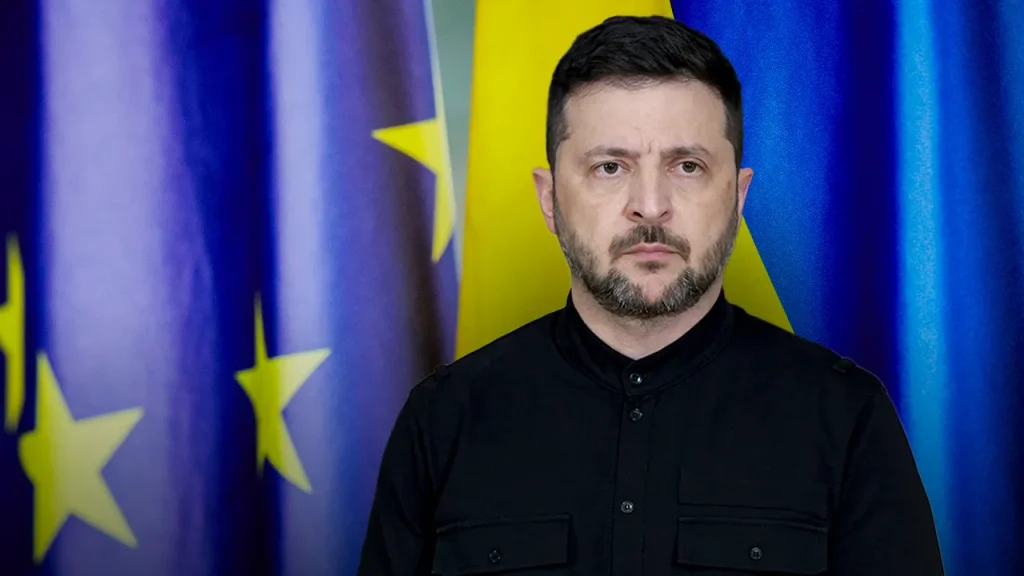Listen to the article
Ukrainian President Volodymyr Zelenskyy announced that Ukraine is making significant progress toward European Union membership, citing the European Commission’s latest Enlargement Package Report as evidence of the country’s advancement despite ongoing war with Russia.
“The European Commission’s Enlargement Package Report confirms: Ukraine is confidently moving toward EU membership and ready to open Clusters 1, 2, and 6,” Zelenskyy wrote on Tuesday on X, the social media platform formerly known as Twitter. “This is the best assessment to date—proof that even as we defend against Russia’s full-scale aggression, Ukraine continues to reform and transform according to European standards.”
Ukraine applied for EU membership in February 2022, just days after Russia launched its full-scale invasion. The country was granted candidate status shortly afterward, beginning what is typically a lengthy accession process.
The European Commission’s 2025 Enlargement Package Report, released Tuesday, provides status updates on several countries seeking EU membership, including Ukraine. The report praised Ukraine for demonstrating “remarkable resilience” in the face of Russia’s invasion and showing “strong commitment” to its EU accession path.
According to the Commission, Ukraine has successfully met the conditions required to open negotiations on three of the six thematic clusters that structure the accession process: Cluster 1 (fundamentals), Cluster 2 (internal market), and Cluster 6 (external relations). This represents significant progress in the complex, multi-year journey toward potential membership.
“The Commission expects Ukraine to meet the conditions to open the remaining three clusters and works to ensure that the Council is in a position to take forward the opening of all clusters before the end of the year,” the Commission stated in its press release.
Despite this positive assessment, the report highlighted ongoing concerns regarding Ukraine’s anti-corruption framework. In late July, Zelenskyy signed a controversial bill that critics claimed would undermine the independence of key anti-corruption agencies, including the National Anti-Corruption Bureau (NABU) and the Specialized Anti-Corruption Prosecutor’s Office. Following widespread protests across Ukraine and international pressure, Zelenskyy reversed course, signing a new law on July 31 that restored their independence.
The Commission emphasized the need for Ukraine to preserve and strengthen these anti-corruption institutions, specifically calling for the expansion of NABU’s jurisdiction. Anti-corruption measures remain a central focus of EU accession requirements, particularly for Eastern European countries with historical corruption challenges.
Ukraine’s Prime Minister Yulia Svyrydenko highlighted the significance of the report, writing on X that it represented Ukraine’s “best result in three years” of evaluation. “The course toward EU membership remains among the top priorities of our President, Parliament, and Government,” she added.
The Ukrainian government has set an ambitious timeline, signaling its objective to provisionally close accession negotiations by the end of 2028. While the Commission expressed support for this goal, it cautioned that meeting such a timeline would require “an acceleration of the pace of reforms… notably with regards to the fundamentals, in particular rule of law.”
The path to EU membership is not without obstacles. Hungarian Prime Minister Viktor Orbán, who has consistently blocked Ukraine’s EU accession progress, told reporters in October that he opposes full membership for Ukraine. “Membership is too much,” Orbán stated, suggesting instead a “strategic agreement” with Kyiv as an alternative to full integration.
The EU enlargement process typically takes many years, with countries required to align their legal systems, economic policies, and governance structures with EU standards across 35 negotiating chapters. For Ukraine, the process is further complicated by the ongoing war with Russia, which has devastated infrastructure and strained government resources.
Nevertheless, the latest report signals growing support within EU institutions for Ukraine’s European aspirations, representing a diplomatic victory for Zelenskyy’s government as it continues to seek international backing in its conflict with Russia.
Fact Checker
Verify the accuracy of this article using The Disinformation Commission analysis and real-time sources.



